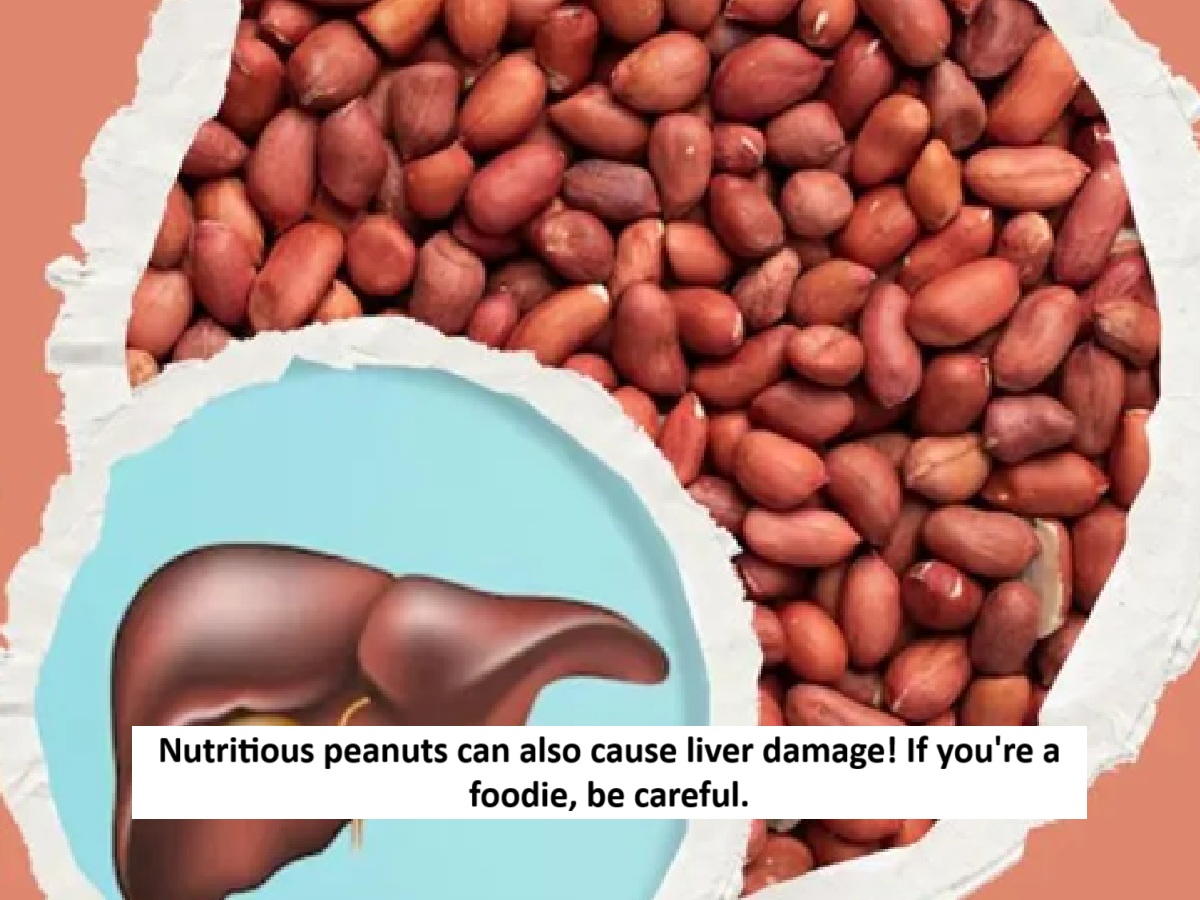
News Topical, Digital Desk : Peanuts are a healthy nut that many people consider a part of their diet. They are a popular choice because they are rich in protein. Furthermore, their affordability also contributes to their inclusion in the diet. Peanuts are often touted for their potential to improve heart health, metabolic balance, and overall health.
However, it can also play a significant role in liver damage. If you're surprised to hear this, a study has revealed this. The research found a link between eating peanuts and liver damage. Let us explain how peanuts can cause liver damage and how to protect yourself from it.
How are peanuts harmful to the liver?
Studies have shown that peanuts' adverse effects on the liver are due to aflatoxin contamination, which is caused by improper storage or processing due to fungus. Aflatoxin-contaminated peanuts can pose a serious threat to liver health, potentially leading to liver cirrhosis or cancer over time. Therefore, proper peanut storage is essential to avoid these adverse effects.
What are aflatoxins?
Aflatoxins are toxins produced by fungi called Aspergillus flavus and Aspergillus parasiticus, which thrive in warm and humid environments. Peanuts and other crops, such as corn, are at high risk of contamination during harvesting, drying, and storage, especially when humidity levels are high and ventilation is poor, which increases the risk of toxin accumulation and foodborne disease. Eating this contaminated food over a long period of time can lead to serious liver damage, weakened immune systems, and even cancer.
How is aflatoxin harmful to the liver?
Aflatoxin intake can cause serious liver damage, leading to cell damage, cirrhosis, and potentially liver cancer. Over time, continued consumption of contaminated foods such as peanuts, corn, and grains can increase liver toxicity, disrupting the detoxification process and significantly increasing the risk of developing liver disease in the long term.
Peanuts also cause harm
A study published in Nutrients found that nuts like peanuts have many benefits, but they also carry a high risk of aflatoxin contamination, which can affect liver functioning. Another study published in BMC Pharmacology & Toxicology found that exposure to aflatoxins increases the risk of liver cirrhosis by approximately 2.5 times compared to those who are not exposed.
Other disadvantages of peanuts
Beyond contamination, peanuts have many other disadvantages. Peanuts are very high in calories, and eating them in large quantities can lead to weight gain and liver fat accumulation, especially in people with metabolic syndrome or poor dietary balance. However, eating them in moderation can be beneficial for health.
How to eat peanuts safely
- Buy peanuts from reputable brands that are aflatoxin tested and meet food safety standards.
- Store peanuts properly in airtight containers, away from heat, sunlight, and moisture.
- Avoid buying moldy or discolored peanuts. Even the slightest visible mold can be a sign of contamination.
- Eat only about 30-40 grams of peanuts in a week.
- Apart from peanuts, include almonds, walnuts or cashews in your diet.
- Do not use rancid peanut oil or any product that has a bad odor.
- If you already have any liver problems, consult a doctor before eating nuts.
--Advertisement--

 Share
Share



